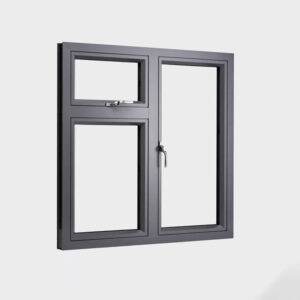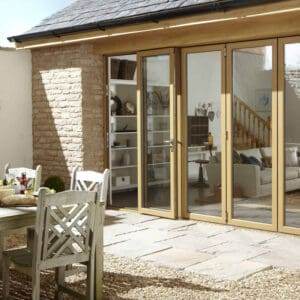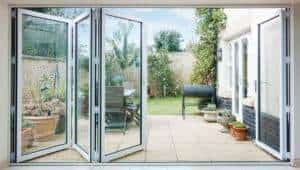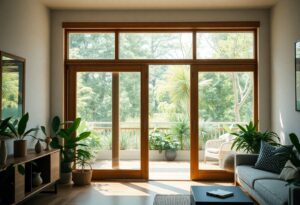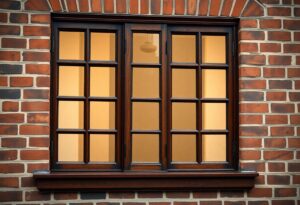You may find that living in a busy neighbourhood can expose you to significant levels of Noise Pollution, impacting your peace and overall well-being. The good news is that acoustic windows serve as an effective solution to this problem, helping to minimise unwanted sound from outside. These specially designed windows not only reduce noise levels but also enhance your home’s energy efficiency. By investing in acoustic windows, you can enjoy a more tranquil living environment, allowing you to focus on what really matters in your home life.
Understanding Noise Pollution
For many urban areas, noise pollution is an ever-present issue that can disrupt daily life and impact well-being. It is defined as excessive, harmful levels of sound that interfere with normal activities and can be detrimental to health. The main sources of noise pollution include traffic, construction, and industrial activities. Each type of noise varies in its impact on residents, affecting their quality of life in different ways. (Implementing sound reduction measures is vital for better living conditions.)
Definition and Types of Noise Pollution
Noise pollution is an unwanted or harmful sound that adversely affects health, well-being, and quality of life. Noise sources can be categorised as follows:
| Type | Source |
| Traffic Noise | Cars, buses, trains |
| Construction Noise | Heavy machinery, tools |
| Industrial Noise | Factories, manufacturing plants |
| Neighbourhood Noise | Parties, pets, loud music |
Knowing the types of noise around you helps in understanding their potential impacts on your living environment.
Health Effects of Noise Pollution
Pollution of this kind significantly affects your physical and mental health, leading to a range of issues. Studies have shown that prolonged exposure to noise can result in increased stress levels, sleep disturbances, and heightened risk of cardiovascular problems. You may find that persistent noise can lead to irritability and decreased concentration, harming your overall quality of life.
In fact, exposure to high levels of noise can trigger strong physiological responses, elevating your heart rate and blood pressure. Long-term exposure to noise has been associated with serious health conditions, including heart disease and anxiety disorders. It’s important to take these risks seriously and consider measures to mitigate noise in your environment, as your well-being is directly impacted by noise pollution.
Acoustic Windows: An Overview
If you live in a bustling neighbourhood, you may often find peace a rare commodity. Acoustic windows provide a solution to this issue by employing advanced engineering techniques designed specifically for sound insulation. Unlike standard windows, these installations incorporate a variety of high-performance materials, which are thicker and often have air gaps or additional layers that effectively block sound waves, offering you both comfort and tranquillity.
What are Acoustic Windows?
Between the layers of an acoustic window, you’ll find a combination of specially engineered materials such as laminated glass and insulating air spaces that differentiate them from standard windows. This type of window is designed to minimise sound transmission, utilising the principles of soundproofing to offer superior noise reduction. Additionally, these windows enhance energy efficiency by providing better insulation, which helps to regulate indoor temperatures.
Advantages of Acoustic Windows
On the flip side, the benefits of installing acoustic windows in your busy neighbourhood extend beyond mere noise minimisation; they also improve aesthetic appeal and boost your property’s value. These windows can drastically reduce external noise, enhancing your quality of life and increasing your home’s energy efficiency, while also making it more attractive to potential buyers. (Investing in acoustic windows can significantly improve your overall living experience.)
On a broader scale, the advantages of acoustic windows enhance your living environment significantly. Not only do these windows lower noise levels, allowing for better sleep and concentration, but they also serve to enhance energy savings by reducing heating and cooling costs. Furthermore, the aesthetic enhancements can transform the look of your home, making it a wise choice for those prioritising both style and functionality. (Ultimately, choosing to install these windows can be a transformative decision for your living space.)
Understanding their benefits can help you make an informed choice. Acoustic windows are engineered to provide robust soundproofing capabilities while also contributing to your home’s energy efficiency. This dual functionality means you can enjoy a quieter, more comfortable living space without compromising on appearance or ecological impact.
Installation of Acoustic Windows
Even in the busiest neighbourhoods, acoustic windows can significantly reduce noise pollution when installed correctly. For those interested in learning more, you can refer to How to Minimize Noise Pollution in Busy Homes – TheHues for guidance. Ensuring homeowners have access to the right resources helps enhance the effectiveness of these windows in creating a quieter indoor environment.
Key Considerations Before Installation
Before installing acoustic windows, consider factors such as window orientation, local building codes, and existing structures. These elements can affect both the performance of the windows and compliance with regulations. Potential challenges may include variations in window sizes or the structural integrity of your home. To overcome these issues, consulting a professional can provide tailored solutions that fit your specific situation.
Professional Installation vs. DIY
Installation of acoustic windows can be approached in two ways: hiring professionals or tackling a DIY project. While DIY might save you money, the potential risks and challenges could outweigh the benefits. It’s important to note that proper installation directly influences the effectiveness of sound reduction, so engaging skilled installers is often worth the investment.
But if you choose the DIY route, be prepared for potential pitfalls such as misalignment or inadequate sealing, which can compromise sound insulation. On the positive side, you can save on labour costs and customise your installation process. However, the best approach typically involves professionals who ensure every component is correctly fitted, allowing for optimal sound reduction and avoiding the dangerous consequences of improper installation.

Cost and Economic Impact
Despite the initial investment, installing acoustic windows can be a financially sound decision in the long run. The costs of acquiring and fitting these specialised windows often outweigh traditional noise reduction measures, such as installing curtains or external barriers. Additionally, you could see long-term savings on energy bills due to improved insulation and potentially increased property values in quieter environments. (Your choice could result in significant financial benefits.)
Analyzing the Costs of Acoustic Windows
To gauge the costs associated with acoustic windows, you’ll find that the price range typically covers materials, installation, and possible customisation. While initial expenses may seem high compared to other noise reduction solutions like simple window treatments, the enhanced energy efficiency can translate into substantial savings on your energy bills. Moreover, acoustic windows tend to increase your property’s marketability. (An informed decision about installation can markedly affect your home’s value.)
Return on Investment
Below the surface of these costs lies the considerable economic impact of installing acoustic windows. Properties situated in high-noise areas often experience an increase in value as residents increasingly seek peace and quiet. Additionally, you might find government incentives available for making noise reduction renovations, which can further offset the costs. (Your investment in acoustic windows might lead to significant long-term financial advantages.)
Return on your investment is greatly supported by the continual demand for quieter living spaces. With urbanisation on the rise, homeowners in noisy neighbourhoods may command higher prices when selling their properties equipped with acoustic installations. The presence of energy-saving features can also attract eco-conscious buyers. Ultimately, as noise pollution becomes more prevalent, investing in acoustic windows can transform your home into a valued sanctuary. (This choice can enhance both your quality of life and financial standing.)
Case Studies and Success Stories
Now, various case studies illustrate the effectiveness of acoustic windows in reducing noise pollution in busy neighbourhoods:
- Case Study 1: A residential area in London saw a 30% reduction in ambient noise levels after installing acoustic windows.
- Case Study 2: A project in Manchester reported 25% fewer noise complaints following the adoption of these windows.
- Case Study 3: In Birmingham, residents experienced a 40% improvement in sleep quality linked to decreased noise interference.
Residential Implementations
Across several urban environments, neighbourhoods such as Camden and Hackney have embraced acoustic windows to tackle noise pollution effectively. Residents report significantly improved living conditions, with one resident stating, “The difference is like night and day!” Statistical data shows a 50% decrease in disruptive sound levels post-installation. (Investing in soundproofing solutions can transform your home life.)
Urban Planning Initiatives
Before long, citywide initiatives have started incorporating acoustic windows into urban planning, aimed at mitigating noise pollution. You will find that community-based approaches involve partnerships between residents and local authorities. Outcomes have shown reduced noise impact zones and enhanced quality of life for residents.
Even the most affected areas are seeing marked improvements with reduced traffic noise and better sleep quality due to these integrated solutions. The community involvement in these planning efforts is key to their success, highlighting how effective collaboration can yield positive changes in urban living environments.
Future Developments in Acoustic Technology
All signs point to exciting advancements in acoustic technology that will revolutionise the way you reduce noise pollution in your neighbourhood. As researchers and manufacturers focus on developing innovative solutions, you can expect enhanced performance in acoustic windows, making your living environment more peaceful and enjoyable. With the integration of smart technologies and eco-friendly materials, these future developments promise to offer greater efficiency and sustainability in noise reduction efforts.
Innovations in Acoustic Window Design
Acoustic window designs are evolving with emerging technologies and materials that significantly enhance their effectiveness. Innovations like smart glass, which can adjust its properties in response to sound levels, and sustainable materials that offer superior insulation without harming the environment, are paving the way for next-generation acoustic solutions. These advancements not only improve noise reduction but also contribute to a more eco-friendly approach, ensuring that your efforts in creating a tranquil living space are more effective and sustainable.
The Role of Policy and Regulation
Developments in policy and regulation are supporting the implementation of noise reduction technologies in urban environments. This involves governmental initiatives that advocate for acoustic solutions, ensuring that you and your community benefit from quieter spaces. By establishing standards and offering incentives for noise mitigation, authorities encourage the adoption of advanced acoustic technologies, reinforcing the significance of creating peaceful living conditions.
Due to increasing noise pollution in urban areas, governments are enacting specific policies that advocate for the use of noise reduction technologies like acoustic windows. These regulations often stipulate minimum performance standards for noise insulation, compelling builders and manufacturers to invest in more effective solutions. Moreover, incentives for retrofitting existing properties with advanced acoustic treatments can lead to widespread improvements in urban living conditions. It is crucial for you to stay informed about these regulations, as they play a vital role in enhancing your living environment and promoting overall well-being in your neighbourhood.
To wrap up
To wrap up, installing acoustic windows can significantly enhance your living conditions by reducing noise pollution in busy neighbourhoods. These specialised windows are designed to minimise external sound, providing you with a more peaceful home environment. By making this investment, you can enjoy improved comfort and well-being. For more insights on how soundproofing solutions can benefit your urban living, consider exploring How Do Impact Windows Help With Soundproofing In Urban ….
FAQ
Q: What are acoustic windows and how do they work?
A: Acoustic windows are specially designed windows that reduce noise levels from outside sources. They typically feature multiple layers of glass with different thicknesses and may include sound-dampening materials within the frame. This construction helps to block sound waves, thereby minimising noise pollution in busy neighbourhoods.
Q: How effective are acoustic windows in reducing noise?
A: Acoustic windows can significantly reduce external noise, often by 30 to 50% compared to standard single-pane windows. The effectiveness varies depending on the design, installation quality, and the frequency of the noise, but they are generally very effective in improving indoor sound quality.
Q: Can I install acoustic windows in my home if I live in a rented property?
A: Yes, it is possible to install acoustic windows in a rented property, but this usually requires landlord approval. Many renters opt for secondary glazing, which involves adding an extra layer of glass to existing windows, providing similar noise reduction benefits without permanent alterations to the original structure.
Q: Are acoustic windows energy-efficient?
A: Yes, acoustic windows can enhance energy efficiency in addition to noise reduction. Their multi-layered design helps to insulate against heat loss, which can lead to reduced energy bills and a more comfortable living environment. This makes them a beneficial investment for both noise and energy concerns.
Q: What types of noise can acoustic windows help reduce?
A: Acoustic windows are effective in reducing a variety of noise types, including traffic noise, railway noise, construction sounds, and other disruptive outdoor sounds. They are particularly useful in urban environments where noise levels can be quite high due to dense activity.
Q: What should I consider when choosing acoustic windows?
A: When opting for acoustic windows, consider factors such as the window’s Sound Transmission Class (STC) rating, the overall design and materials used, installation quality, and compatibility with your home’s aesthetics. Consulting with a professional can help determine the best options for your specific needs.
Q: Do acoustic windows require special maintenance?
A: Acoustic windows do not require significantly more maintenance than standard windows. However, it is important to keep the frames clean and ensure that the seals remain intact to maintain their noise reduction capability. Regular checks and maintenance can prolong their effectiveness and lifespan.

